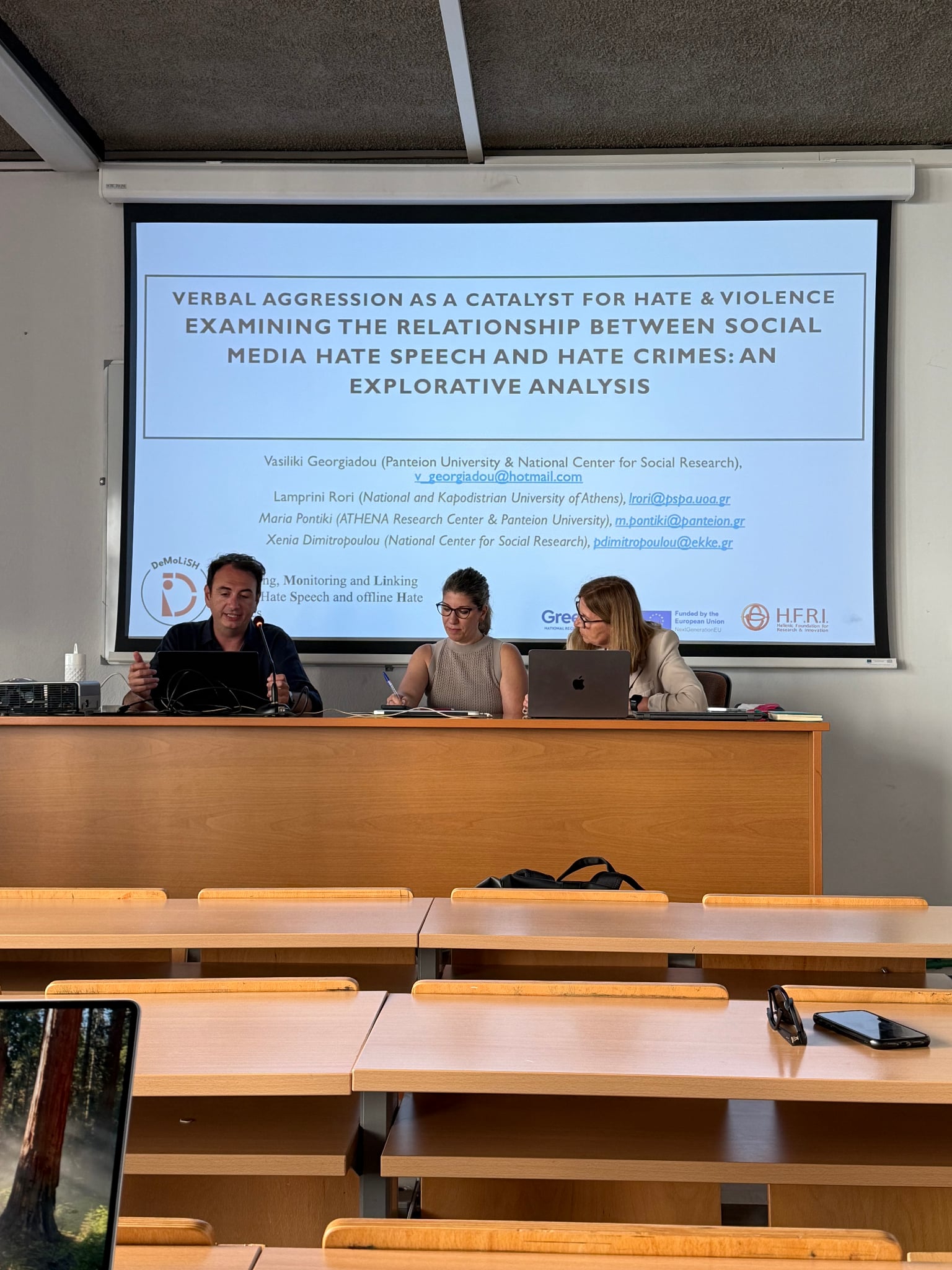
Proud to present “Online Verbal Aggression as a Catalyst for Hate and Violence” at the ECPR General Conference 2025 (Aristotle University of Thessaloniki, 26–29 August).
Following a linguistically-driven computational framework, we analyze over 4 million tweets posted on Greek X (formerly Twitter) between 2015 and 2022, a period marked by a series of socio-economic crises, including the economic, refugee, and pandemic crises.
The quantitative analysis of different types of verbal attacks (i.e. criticism, swearing, irony, ousting, calls for physical abuse) provides insights into the levels and fluctuations of VA targeting specific groups across the examined period. The qualitative analysis of the different types and the content of the verbal attacks provides evidence of long-standing stereotypes and prejudices deeply rooted in Greek society, and reveals narratives on which the rhetoric of hatred against specific groups in Greece is based. Our mixed-method analysis highlights key linguistic patterns that amplify hate ideologies and aggression in Greek online discourse by reinforcing populist reflexes, hostility and polarisation, as well as the contexts and events that trigger and exacerbate such forms of expressiveness.
Our findings shed light on the societal tensions underlying digital hate speech and provide a framework for exploring how online hostility can spill over into real-world violence.
The research took place in the framework of the project “Detecting, Monitoring and Linking online Hate Speech and offline Hate Crimes” (DeMoLiSH), funded by the Hellenic Foundation for Research and Innovation (HFRI).
Presentation: Vasiliki Georgiadou, Lamprini Rori, Maria Pontiki, Xenia Dimitropoulou
👉 Read more on the ECPR page: https://ecpr.eu/Events/Event/PaperDetails/83047
